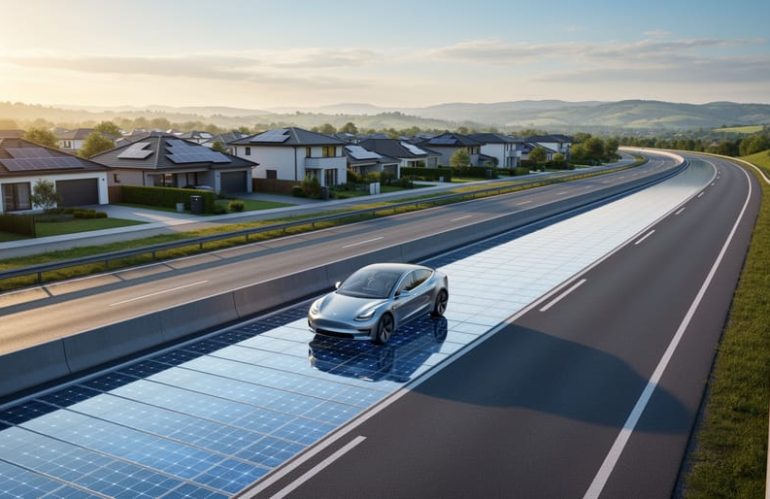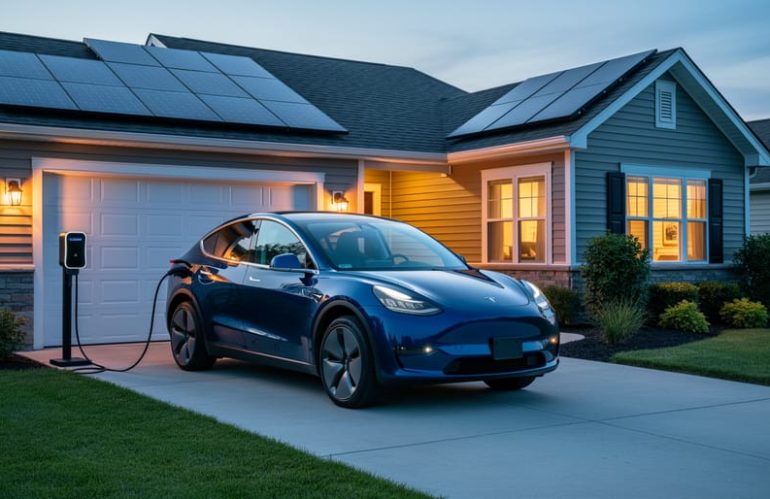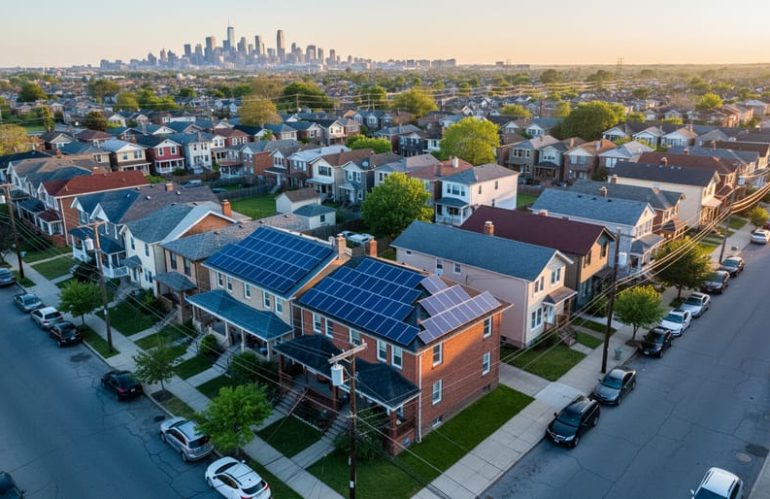Imagine driving on highways that generate electricity while you commute, or parking lots that power the buildings they serve. Solar-powered roads embed photovoltaic panels directly into driving surfaces, transforming ordinary pavement into energy-producing infrastructure. While the concept sounds futuristic, pilot projects already exist worldwide, from France’s kilometer-long solar roadway to specialized bike paths in the Netherlands.
For homeowners exploring renewable energy options, solar roads raise an important question: should you wait for this technology to arrive in your neighborhood, or invest in proven rooftop solar …
Author: richard
What Your Solar Contract Really Means (Before You Sign)
Going solar is one of the smartest investments you can make for your home and wallet, but the contract you sign determines whether you’ll enjoy decades of savings or face unexpected costs and limitations. Most homeowners feel overwhelmed when faced with dense legal documents filled with unfamiliar terms, payment structures, and long-term commitments. The good news? Solar contracts aren’t as complicated as they seem once you understand the three main types and know what red flags to watch for.
Whether you’re considering a purchase agreement, lease, or power purchase agreement, each contract type affects your savings…
What Actually Happens to Your Home Battery When It Dies
Your home battery storage system won’t last forever, but here’s the good news: when it reaches the end of its 10-15 year lifespan, nearly all of its valuable materials can be recovered and reused. Battery recycling transforms what could be hazardous waste into valuable resources like lithium, cobalt, nickel, and aluminum that manufacturers use to create new batteries and other products. The process involves safely collecting used batteries, discharging any remaining …
How Solar Sales Consultants Turn Sunny Conversations Into Real Energy Savings
A solar sales consultant serves as your trusted guide through the solar installation journey, transforming complex renewable energy decisions into clear, personalized solutions for your home. These professionals combine technical knowledge with financial expertise to help homeowners like you understand how solar panels can slash electricity bills by 50-90% while increasing property values.
When you meet with a solar sales consultant, they assess your home’s energy needs, evaluate your roof’s solar potential, and design a customized system that maximizes your savings. They break down available federal tax credits, state …
How Rapid Shutdown Devices Keep Firefighters Safe at Your Solar Home
When firefighters arrive at a burning home, they face an invisible danger: solar panels on your roof continue generating potentially lethal electricity even during emergencies. Rapid shutdown devices solve this critical safety concern by automatically cutting power flow within seconds when your system disconnects from the grid or when emergency responders flip a clearly marked switch.
These compact safety components have become standard equipment in modern solar installations, functioning like a circuit breaker specifically designed for your solar array. The moment your system detects a problem or receives a shutdown signal, voltage…
Why Lithium Batteries Are Transforming Home Solar Storage (And Saving Homeowners Thousands)
Lithium solar storage batteries transform your solar panels from a daytime-only power source into a 24/7 energy independence system. When you install these advanced batteries, you’re capturing excess solar energy during peak production hours and using it when the sun goes down—slashing your evening electricity bills and protecting yourself from rising utility rates. Unlike older battery technologies that require constant maintenance and replacement, lithium batteries last 10-15 years with virtually zero upkeep, making them a smart long-term addition to your …
How Your EV Can Power Your Home (And Cut Your Energy Bills)
Your electric vehicle can do more than drive—it can power your home, slash your energy bills, and give you control over rising electricity costs. Bidirectional EV charging transforms your car’s battery into a massive energy storage system, letting electricity flow both ways: from the grid to your vehicle, and from your vehicle back to your home when you need it most.
Think of it as having a backup generator that recharges itself while you’re at work. When electricity rates spike during peak hours or the grid goes down during a storm, your EV seamlessly kicks in to keep your lights on, refrigerator running, and air …
How Blockchain Technology Protects Your Solar Investment From Tampering and Theft
Your solar panels generate clean energy and savings every day, but without proper tracking, you could be losing money to billing errors, system inefficiencies, or even energy theft. Blockchain technology creates an unchangeable digital record of every kilowatt your system produces, acting like a financial shield that protects your solar investment from discrepancies and ensures you receive full credit for the power you generate.
Think of blockchain as a digital notary that timestamp-stamps your energy data every few minutes, making it virtually impossible for anyone to alter your production records or dispute your solar credits. …
Solar Panels Actually Cost Less Per kWh Than Nuclear (Here’s the Math)
Solar power costs between 3-6 cents per kilowatt-hour for new installations, while nuclear energy ranges from 11-20 cents per kWh when accounting for actual construction costs and delays. That’s right—solar now produces electricity at roughly one-third the cost of nuclear power, completely reversing what many people learned in school about “cheap nuclear energy.”
If you’re a homeowner researching whether solar panels make financial sense, you’ve probably heard nuclear advocates claim their technology offers the most affordable clean energy. The numbers tell a different story. Solar installation costs …
Why Solar Energy Still Leaves Some Communities Behind (And How Policy Can Fix It)
Solar panels gleam on rooftops across America, but they’re not shining equally for everyone. While solar energy promises a cleaner future and lower electricity bills, the reality is that low-income households, communities of color, and renters face significant barriers to accessing these benefits. The average solar installation costs $15,000 to $25,000 upfront—a price tag that immediately excludes millions of families, regardless of how much they’d save long-term.
This access gap isn’t just unfair; it’s widening the economic divide. Wealthier homeowners lock in decades of energy savings and increased …










